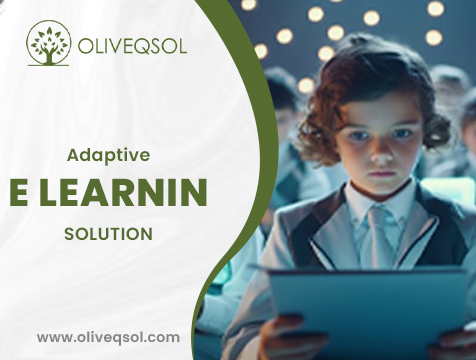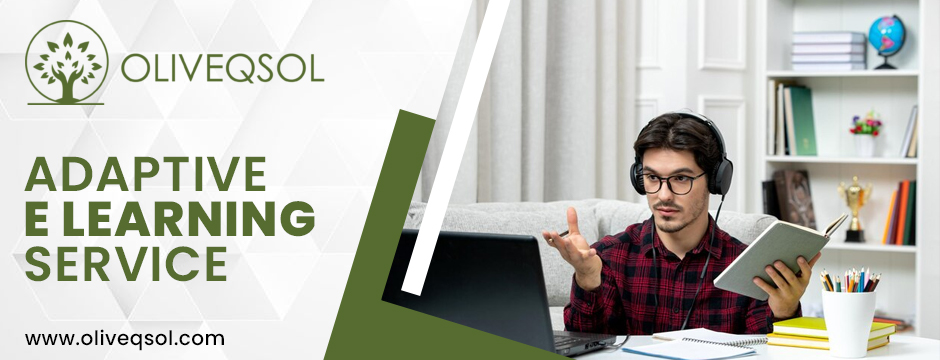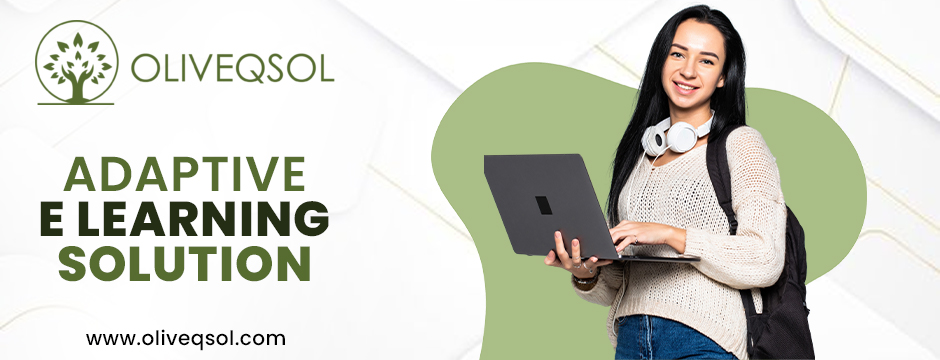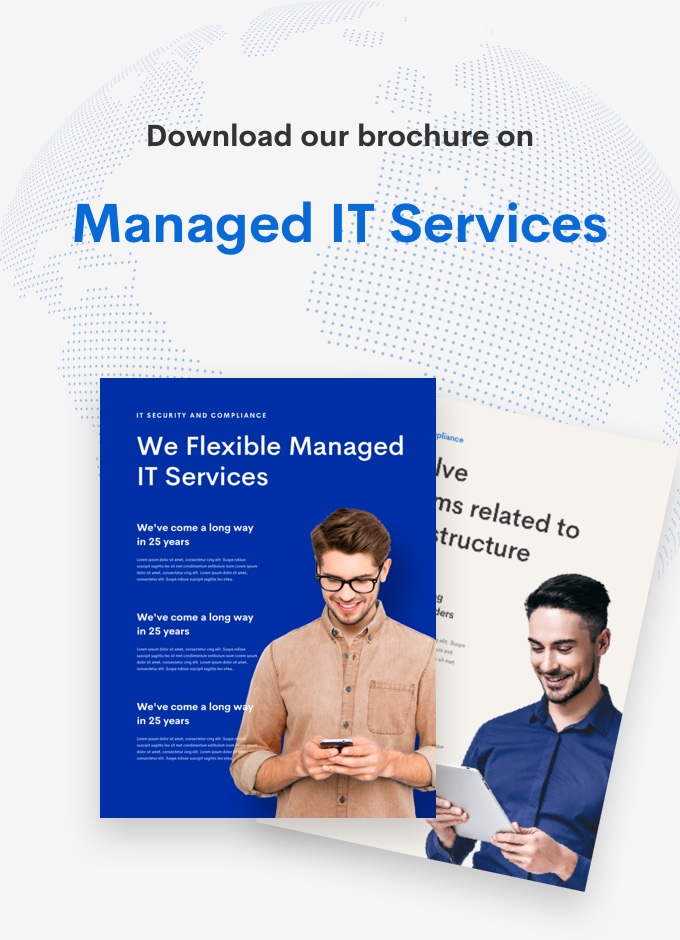Benefits of Adaptive E-learning Solutions in Corporate Training Programmes

Benefits of Adaptive E-learning Solutions in Corporate Training Programmes
Corporate training programmes are essential for enhancing employee skills and productivity in today’s competitive business environment. These programmes equip employees with the knowledge and capabilities needed to succeed in their roles. In this regard, adaptive learning, a dynamic educational approach, tailors content delivery based on individual learner needs and performance.
In corporate settings, adaptive e-learning solutions optimise training effectiveness by personalising learning paths, boosting engagement, and providing real-time feedback. This innovative method ensures that employees receive relevant and impactful learning experiences, fostering continuous improvement and professional development.

Enhanced Personalization of Learning
Adaptive learning’s ability to tailor content
Adaptive learning uses algorithms to assess employees’ strengths and weaknesses, adjusting content in real-time. This approach ensures each employee receives personalised learning experiences that match their skill levels and learning pace.
Examples of personalised learning paths and modules
For instance, new hires might begin with foundational modules, while experienced staff focus on advanced topics. Modules can adapt based on learner progress. It offers targeted content like sales techniques or leadership skills.
Improved engagement and Motivation
Promotion of higher engagement levels
Adaptive learning fosters engagement by offering content tailored to individual interests and learning styles. Here, interactive quizzes, simulations, and multimedia keep learners actively involved. On the other hand, progress tracking provides instant feedback. Because it motivates employees to achieve milestones.
Gamification and interactive elements
Platforms integrate gamification elements like points, badges, and leaderboards to incentivise learning. Interactive simulations help employees apply knowledge in realistic scenarios, enhancing engagement and retention. As a benefit, such features make learning enjoyable and encourage continuous participation in training programmes.
Flexible Learning Paths
Freedom of learning at the personal pace
In adaptive e-learning solutions, flexible learning paths empower employees to progress through training materials according to their abilities and schedules. Adaptive learning systems adjust content difficulty based on individual performance. As a result, these systems ensure each employee can grasp concepts thoroughly before moving forward. This autonomy promotes deeper understanding and reduces stress associated with rigid timelines. Ultimately, it enhances learning outcomes and job satisfaction.
Different learning styles
Adaptive platforms cater to diverse learning styles by offering varied content formats and interactive tools. Visual learners find videos and infographics helpful. In contrast, auditory learners tend to favour podcasts or narrated modules. Adaptive systems personalise experiences based on user behaviour and feedback, delivering content in preferred formats. This approach ensures that employees engage with the material in ways that maximise comprehension and retention. As a result, it supports a more inclusive learning environment.
Real-Time Feedback and Assessment
Importance of immediate feedback in learning and development
Immediate feedback is crucial for effective learning as it helps learners correct mistakes promptly and reinforce correct behaviours. In corporate training, timely feedback fosters a continuous improvement mindset and prevents misunderstandings from solidifying. It allows employees to adjust their learning approach in real-time. It leads to quicker mastery of skills and concepts.
Providing actionable insights for both learners and trainers
Adaptive learning systems gather and analyse data on learner performance throughout the training process. This data of adaptive e-learning solutions provides trainers with actionable insights into individual strengths, weaknesses, and learning patterns. Trainers can customise interventions based on real-time analytics, addressing specific needs and enhancing overall training effectiveness. Learners benefit from personalised recommendations for improvement, fostering a supportive learning environment focused on individual growth.
Data-Driven Decision Making
Utilisation of analytics and data
Adaptive learning platforms utilise sophisticated analytics to track learner progress, engagement levels, and content effectiveness. These platforms use data such as quiz scores, completion rates, and interaction patterns to assess learner performance objectively. So, by analysing this data, trainers gain valuable insights into individual learning trajectories. Also, they can adjust content and strategies accordingly to optimise learning outcomes.
Improvement of training effectiveness and ROI
Data insights from adaptive learning platforms enable trainers to identify trends and patterns in learner behaviour. For instance, analytics may reveal that certain modules or topics are particularly challenging for a specific group of employees. Armed with this information, trainers can revise content, provide additional support where needed, and tailor learning paths to enhance comprehension and retention. This targeted approach improves training effectiveness. Additionally, it boosts ROI by ensuring that training investments yield measurable improvements in employee performance.
Future Trends and Innovations
Adaptive learning technologies for corporate training
Adaptive learning is evolving with advancements in artificial intelligence (AI) and machine learning (ML). It enables more personalised and responsive learning experiences. Predictive analytics and algorithms now predict learner behaviour and adjust content in real-time. Furthermore, the integration of virtual reality (VR) and augmented reality (AR) is enhancing engagement by immersing employees in interactive scenarios, making learning more practical and applicable to real-world situations.
The future of adaptive learning in the corporate world
Looking ahead, adaptive e-learning solutions are expected to become even more integral to corporate training strategies. AI-driven personalisation will become more sophisticated, delivering hyper-personalised learning experiences tailored to each employee’s unique needs and preferences. The focus will shift towards continuous learning, with adaptive platforms offering ongoing skills development and career path guidance. As organisations prioritise agility and innovation, adaptive learning will play a pivotal role in fostering a dynamic and adaptable workforce capable of meeting evolving business challenges.
Scalability and consistency
Scalable training programmes across large organisations
In adaptive e-learning solutions, learning platforms use AI and machine learning to deliver personalised training content to a diverse workforce, regardless of size or geographical location. This scalability ensures that training programmes can be deployed uniformly across different departments and regions, accommodating varying skill levels and learning needs. By automating content delivery and assessment, organisations can efficiently onboard new hires, upskill existing employees, and maintain consistency in learning outcomes across the board.
Consistent learning experiences and content delivery
Adaptive learning platforms maintain consistency by standardising content delivery methods and learning objectives. Through personalised learning paths, employees receive tailored content that aligns with their skill levels and career goals, ensuring a cohesive learning experience. Real-time analytics track learner progress and performance, allowing trainers to adjust content dynamically to maintain consistency. This approach fosters a unified training strategy that enhances knowledge retention and skill development across the organisation.

Summary
Adaptive learning platforms leverage AI and machine learning to deliver personalised training content to a diverse workforce, regardless of size or geographical location. This scalability ensures that training programmes can be deployed uniformly across different departments and regions, accommodating varying skill levels and learning needs. By automating content delivery and assessment, organisations can efficiently onboard new hires, upskill existing employees, and maintain consistency in learning outcomes across the board.
Transform your training with OliveQSol‘s adaptive e-learning solutions. Enhance engagement and achieve your training goals with our tailored, effective strategies. Contact us today for the best adaptive e-learning services to revolutionise your learning experience!


